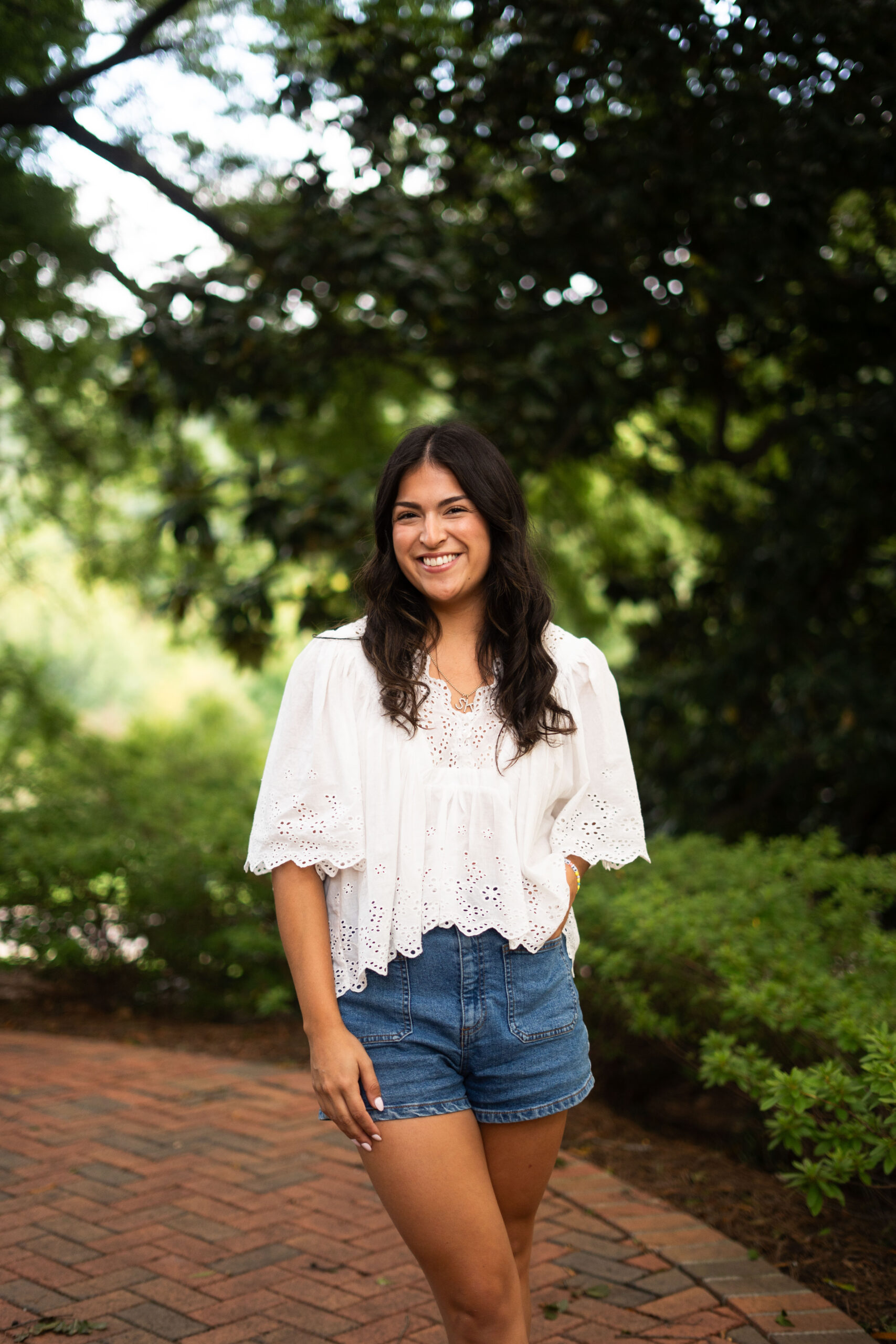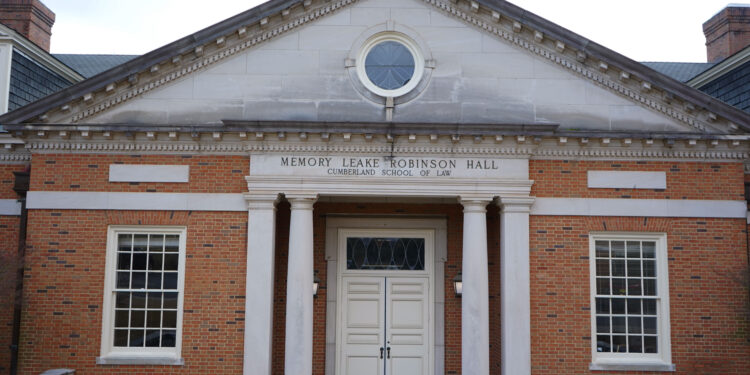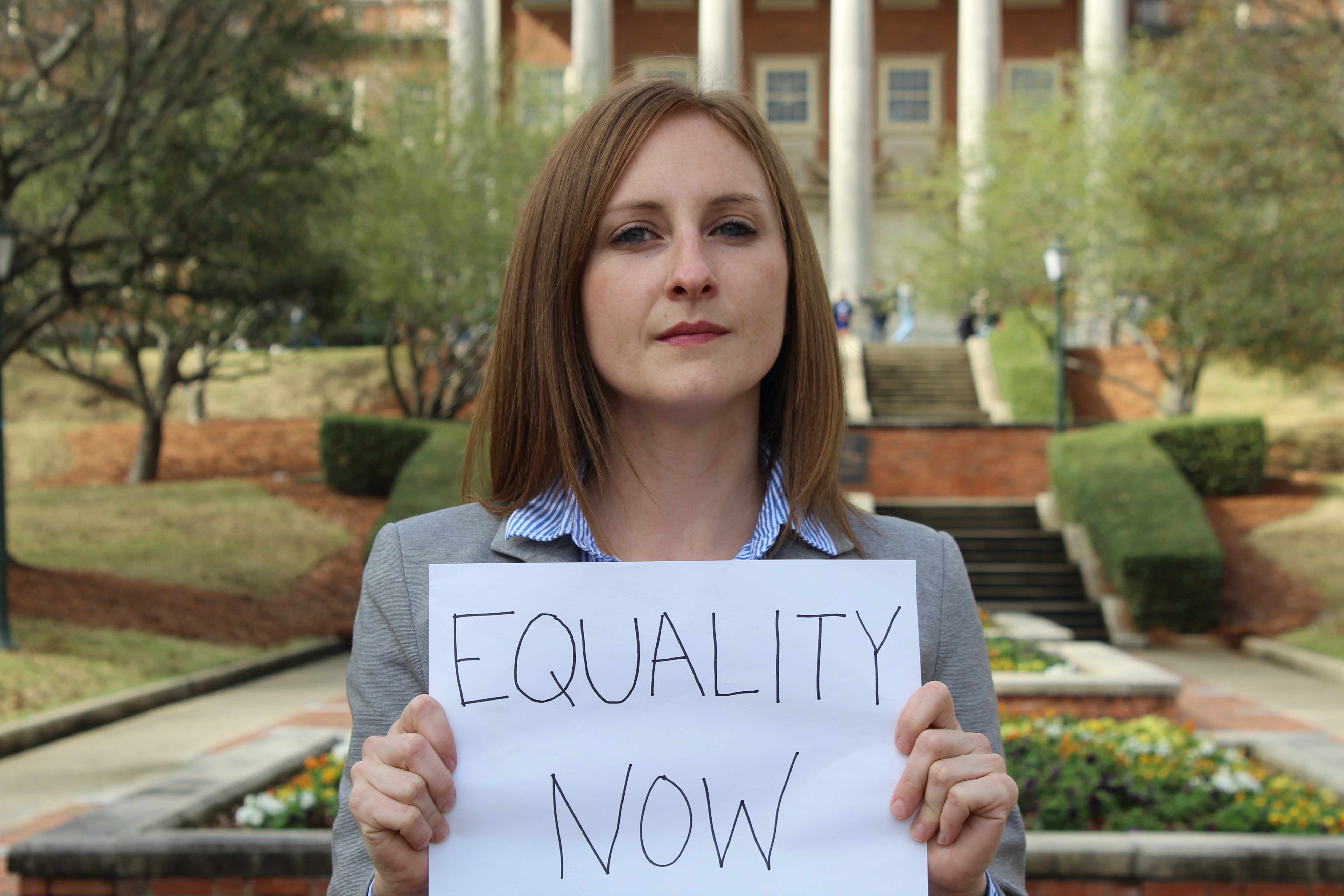Samford’s Cumberland School of Law resides in the middle of Samford’s campus, yet its accolades and prowess appear to be hidden somewhere behind the new gym.
Cumberland is an award-winning law school, namely for its advocacy programs. Within advocacy, there are three main types: trial, moot court and alternative dispute resolution (ADR).
Each of these advocacy programs has contributed to Cumberland’s high-level standings in various open competitions and invitationals.
Lily Dickinson, a 3L (third year) law student at Cumberland, specializes in trial advocacy and has participated in both intramural competitions as well as with the National Trial team. She now serves as the Williams Competition Director.
“I knew some people before I started who were already at Cumberland who were on trial teams,” Dickinson said. “The first intro I had was the Williams Competition.”
Every competition is different, but the Williams is for 1L (first year) law students who want to gain experience in trial advocacy. The way the program functions at Cumberland, students have to be a 2L (second year), to join the National Trial team.
Competitions like the Williams are an avenue for up-and-coming law students to get their feet wet in the courtroom in a real-world environment that’s still somewhat controlled.
“The point of the Williams is to encourage people to try litigation to see if they might want to work in litigation,” Dickinson said. “A lot of people don’t know what it’s like unless they have experience working for a firm that went to trial all the time.”
The way this competition functions is a case is picked by the Williams Competition Director and tailored to be appropriate for the students’ level. Students pair up and are split into teams and are then assigned to the defense or the plaintiff.
Students then take the time to learn the case, build their side and eventually go before attorneys to judge the case. Students will then switch sides and argue the other. These competitions usually start with 36 teams, then move down to 16, eight, four and then commence the final round.
“It is rewarding and tiring at the same time,” said 1L student Wells Perrigin. “It was a really fun experience, but it was definitely eye-opening with all the work that’s done to prepare.”
Cumberland’s awards and standings in these competitions speak to its success in preparing the next generation of future lawyers and prove prominent in drawing these young professionals into the school. Think about it through the same lens as what attracts undergrad students to Samford.
Sports success is what draws in a lot of Samford students, and advocacy team success is what attracts law students.
Chief Judge John West, former trial advocacy partner to Dickinson, makes the connection between Cumberland’s prestige and Samford’s athletics victories.
“Just as the men’s basketball team’s bid to the NCAA Tournament brought exposure and notoriety to Samford University, our success as a top 10 ranked program has brought priceless exposure and notoriety to both Cumberland and Samford,” West said.
Cumberland’s trial advocacy teams perform to the highest degree of professionalism, and their awards reflect that.
“We consistently win the Professionalism award which is something I really appreciate about Cumberland,” Dickinson said. “Our coaches say, ‘We are Cumberland, we don’t Boo Hoo and we don’t Woo Hoo’.”
It’s clear that Cumberland students conduct themselves with poise and self-control, and others are noticing.
More than their professionalism, Cumberland focuses on creating effective advocators utilizing their individuality and personality.
“My coach, Judge Roberts, tells everybody when we start orientation that the Cumberland trial program does not produce robots,” West said.
With Cumberland placing heavy emphasis on each student’s unique style, this gives way for different styles of advocacy to be shown and represented.
Not only does Cumberland produce individualized lawyers, but it also yields lasting friendships in the professional field.
“Being on the trial team for two years and being a part of the program has given me so much more than legal training,” Dickinson said. “My best friends are on the trial team; I wouldn’t trade the joy and laughter and work of being with my friends and doing something together for anything.”

Sports Editor






